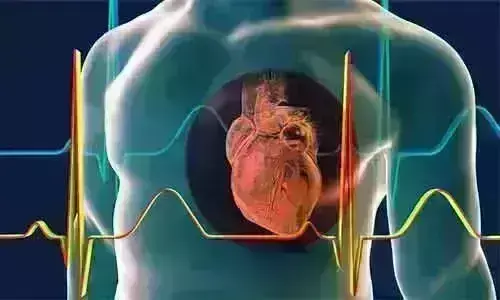- Home
- Medical news & Guidelines
- Anesthesiology
- Cardiology and CTVS
- Critical Care
- Dentistry
- Dermatology
- Diabetes and Endocrinology
- ENT
- Gastroenterology
- Medicine
- Nephrology
- Neurology
- Obstretics-Gynaecology
- Oncology
- Ophthalmology
- Orthopaedics
- Pediatrics-Neonatology
- Psychiatry
- Pulmonology
- Radiology
- Surgery
- Urology
- Laboratory Medicine
- Diet
- Nursing
- Paramedical
- Physiotherapy
- Health news
- Fact Check
- Bone Health Fact Check
- Brain Health Fact Check
- Cancer Related Fact Check
- Child Care Fact Check
- Dental and oral health fact check
- Diabetes and metabolic health fact check
- Diet and Nutrition Fact Check
- Eye and ENT Care Fact Check
- Fitness fact check
- Gut health fact check
- Heart health fact check
- Kidney health fact check
- Medical education fact check
- Men's health fact check
- Respiratory fact check
- Skin and hair care fact check
- Vaccine and Immunization fact check
- Women's health fact check
- AYUSH
- State News
- Andaman and Nicobar Islands
- Andhra Pradesh
- Arunachal Pradesh
- Assam
- Bihar
- Chandigarh
- Chattisgarh
- Dadra and Nagar Haveli
- Daman and Diu
- Delhi
- Goa
- Gujarat
- Haryana
- Himachal Pradesh
- Jammu & Kashmir
- Jharkhand
- Karnataka
- Kerala
- Ladakh
- Lakshadweep
- Madhya Pradesh
- Maharashtra
- Manipur
- Meghalaya
- Mizoram
- Nagaland
- Odisha
- Puducherry
- Punjab
- Rajasthan
- Sikkim
- Tamil Nadu
- Telangana
- Tripura
- Uttar Pradesh
- Uttrakhand
- West Bengal
- Medical Education
- Industry
Empagliflozin reduces cardiac and renal risk in HFrEF patients, regardless of baseline NT-proBNP: Study

USA: Findings from the EMPEROR-Reduced trial showed higher baseline NT-proBNP concentrations to be associated with poor cardiorenal outcomes. However, the use of empagliflozin reduced this risk across all NT-proBNP levels. The study appears in the Journal of the American College of Cardiology.
James L. Januzzi, Cardiology Division, Massachusetts General Hospital, Boston, Massachusetts, USA, and colleagues sought to evaluate the relationship between N-terminal pro–B-type natriuretic peptide (NT-proBNP) and empagliflozin effects in EMPEROR-Reduced (Empagliflozin Outcome Trial in Patients With Chronic Heart Failure With Reduced Ejection Fraction).
The study included patients with heart failure with reduced ejection fraction (HFrEF). They were randomly assigned to placebo or empagliflozin 10 mg daily. NT-proBNP was measured at baseline, 4 weeks, 12 weeks, 52 weeks, and 100 weeks. Patients were divided into quartiles of baseline NT-proBNP.
Following were the study findings:
- Incidence rates for each study outcome were 4- to 6-fold higher among those in the highest versus lowest NT-proBNP quartiles (≥3,480 vs <1,115 pg/mL).
- Study participants with higher NT-proBNP had 2- to 3-fold total hospitalizations higher than the lowest NT-proBNP quartile.
- Empagliflozin reduced risk for major cardiorenal events without heterogeneity across NT-proBNP quartiles.
- Empagliflozin treatment significantly reduced NT-proBNP at all timepoints examined; by 52 weeks, the adjusted mean difference from placebo was 13%.
- An NT-proBNP in the lowest quartile (<1,115 pg/mL) 12 weeks after randomization was associated with lower risk for subsequent cardiovascular death or heart failure hospitalization regardless of baseline concentration.
- Treatment with empagliflozin resulted in 27% higher adjusted odds of an NT-proBNP concentration of <1,115 pg/mL by 12 weeks compared with placebo.
"Among patients in the EMPEROR-Reduced Trial, treatment with empagliflozin reduced risk for CV and renal endpoints similarly across NT-proBNP concentrations, including among the patients at highest risk with most elevated baseline NT-proBNP concentration," wrote the authors.
The researchers concldued," The NT-proBNP concentration after treatment with empagliflozin better informs subsequent prognosis than pretreatment concentrations."
Reference:
The study titled, "Prognostic Importance of NT-proBNP and Effect of Empagliflozin in the EMPEROR-Reduced Trial," is published in the Journal of the American College of Cardiology.
DOI: https://www.jacc.org/doi/10.1016/j.jacc.2021.07.046
Dr Kamal Kant Kohli-MBBS, DTCD- a chest specialist with more than 30 years of practice and a flair for writing clinical articles, Dr Kamal Kant Kohli joined Medical Dialogues as a Chief Editor of Medical News. Besides writing articles, as an editor, he proofreads and verifies all the medical content published on Medical Dialogues including those coming from journals, studies,medical conferences,guidelines etc. Email: drkohli@medicaldialogues.in. Contact no. 011-43720751


